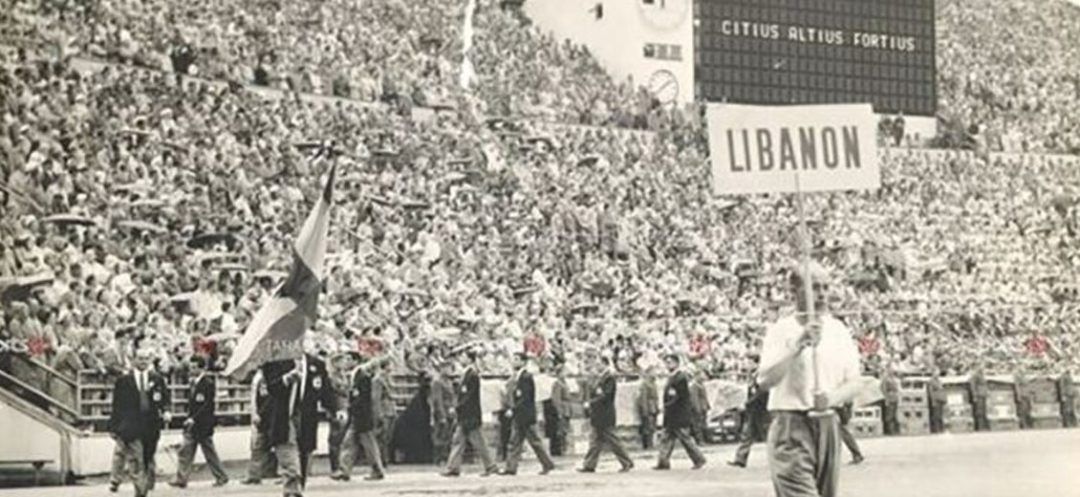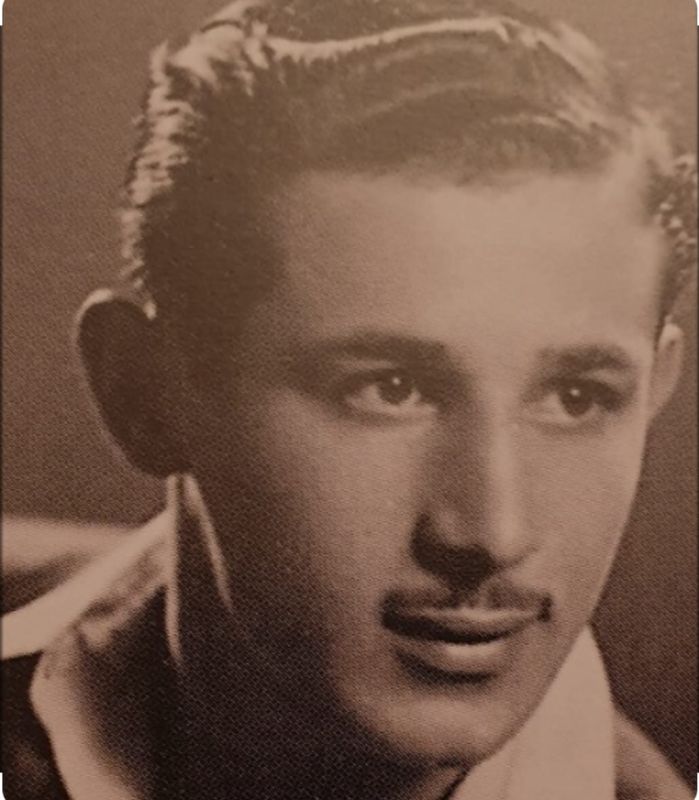
Saint-Moritz is undoubtedly a significant milestone for Lebanese sports, as it was in this small Swiss town that the Olympic adventure for athletes from the Land of Cedars began in 1948.
It was at the Winter Games of 1948 in Saint-Moritz that the first Lebanese delegation, comprising two athletes, Ibrahim Geagea and Mounir Itani, embarked on their journey in January of that year, carrying the wildest Olympic dreams.
The Early Years: A Foundation of Sports
However, the sports renaissance in Lebanon dates back to 1920. From that year, clubs for football, athletics, swimming, skiing, wrestling, boxing, weightlifting, and other sports were successively established. These sports were practiced for a certain period without responsible authorities, and it was not until 1933 that federations began to form. Although lacking an Olympic committee, Lebanon sent a delegation of officials, led by Pierre Gemayel, to the XI Olympiad in Berlin in 1936. It was during these Games that Sheikh Pierre was impressed by the German discipline, which later inspired his future party.
The Melbourne Boycott
It wasn't until 1947, on the advice and directives of Angelo Bolanaki, a member of the Greek Olympic Committee, that the Lebanese Olympic Committee (COL) was founded, with Gabriel Gemayel as its first president. From that date, the COL endeavored to ensure the representation of its country at every Summer Olympics except the Melbourne Games in 1956. Due to Nasserism, Lebanon was one of the three nations (along with Iraq and Egypt) to boycott the event in protest against the Suez Canal crisis. Needless to say, this ridiculous Pan-Arab momentum served absolutely no purpose other than to shatter the Olympic dreams of Lebanese athletes of that era.
First Medals
To this day, no Lebanese athlete holds an Olympic title, but two wrestlers, Zakaria Chéhab, with a silver medal, and Khalil Taha, with a bronze, distinguished themselves in 1952 (Greco-Roman wrestling). Weightlifter Mohammad Traboulsi won a silver medal in 1972. The last national Olympic medal dates back to the Moscow Games (1980), where Hassan Béchara won bronze – indeed, a specialty – in Greco-Roman wrestling.
 Zakaria Chehab is the first Lebanese to win an Olympic medal in 1952.
Zakaria Chehab is the first Lebanese to win an Olympic medal in 1952.Winter Games Struggles
Conversely, in the Winter Olympics, Lebanon, since its first appearance in 1948, has not managed to win a single medal. This is not surprising for a small country where winter sports are reserved for a rather affluent class. Additionally, the quality of the snow is not always ideal, and professionalism is non-existent. Consequently, there has never been a large number of Lebanese athletes, to the point that in the 1952, 1972, and 1976 Games, the Lebanese delegation was reduced to its simplest form: a single participant. Therefore, it is hardly surprising that performances have been, to say the least, modest.
Pioneering Women and Notable Performances
The first female athlete in the Winter Games was Farida Rahmé at the Innsbruck Games in 1976 (giant slalom). It was this same Farida Rahmé who recorded the best Lebanese performance of all time at the Winter Games in Lake Placid in 1980, finishing 19th overall in the slalom.
Notable also is the performance of Chirine Njeim, who represented Lebanon in three Winter Games (2002, 2006, and 2010), carried the national flag twice at the opening ceremonies (2002 and 2010), before successfully dedicating herself to athletics. Thus, the young Lebanese woman from Maasser el-Chouf achieved the feat of participating in the Rio Olympics in 2016, in the marathon event, becoming the first athlete in the world to compete in alpine skiing and athletics.

Current Hopefuls and Challenges
Ray Bassil will represent Lebanon for the fourth consecutive time at the Paris Games, an achievement in itself. However, there are inherent challenges that are difficult to counteract. As each edition of the Olympic Games approaches, both summer and winter, it is customary to find oneself in an absurd situation concerning Lebanese representation.
Lebanon simply skipped the 1994 Games due to a small schism, a national specialty, which resulted in the division of the Ski Federation into two. Consequently, Lebanon found itself with two rival federations! And true to form, Lebanon repeated this high-wire act by missing the 1998 Games for the same reason. Absurd.
Another equally ridiculous but enlightening example: in February 2014, the whole world was preparing to calmly watch the Winter Olympics in Sochi. But Lebanese sports, particularly skiing, became the center of a social media-fueled controversy. This was counterproductive, as Jackie Chamoun was preparing to defend Lebanon's colors in the slalom at the Sochi Games. The young champion faced a pseudo-scandal at the start of the Winter Games due to the release of a video and photos showing her scantily clad during a photoshoot. Carried by an incredible wave of popular solidarity, Jackie Chamoun ignored this controversy but could not achieve the expected results. Without joking, the then Minister of Youth and Sports, Fayçal Karamé, even saw fit to order an investigation. Hats off to the artists!
 Ray Bassil. Photo from her Instagram account.
Ray Bassil. Photo from her Instagram account.All Eyes on Paris
Seventy-eight years later, Lebanon is heading to Paris with a delegation of nine athletes, aiming to end a 44-year drought. “It’s not impossible to win a medal,” COL President Pierre Jalkh told This is Beirut a few days ago. Lebanon's chances could come from Ray Bassil, who at 35 will be participating in her fourth Olympic Games, or from the mysterious Caramnob Sagaipov. Others, like Laetitia Aoun, if at their best, could surprise and go further in the competition. That is certainly our hope for our ambassadors.
Beyond medals and records, the Olympic Games have a special significance for Lebanon. They are an opportunity to transcend divisions and celebrate national unity… almost. Far from being an army, unlike the United States, which will send 592 athletes to Paris, or France with its 571 representatives, the Lebanese delegation will include only nine athletes, about twenty coaches, and a plethora of officials, keeping with good traditions.
Fond memories of the Beijing Games in 2008, where officials outnumbered our athletes... Again in Beijing, but during the 2022 Winter Games this time, the Lebanese delegation was led by the president of the Lebanese Judo Federation! You can’t make this up.
It is also quite normal to invariably argue over the choice of the Lebanese flag bearer. Not to mention the rocambolesque and especially sad case of athlete Nour Hadid, for reasons not worth revisiting.
For a moment, one might long for the time when Lebanon had only one representative. That way, crucial choices for the nation would have been avoided.
There are traditions that force respect by their consistency.
 Laetitia Aoun
Laetitia Aoun
Read more




Comments